Cinema Lover | Joined 8 Sep 2021
Categories
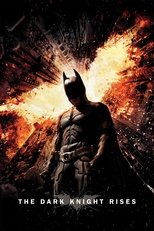
The Dark Knight Rises, released on July 20, 2012, is the third and final film of the Christopher Nolan Batman trilogy. With the enormous commercial success and striking critical acclaim of The Dark Knight, expectations for its sequel rose to a level matched by no film this summer season. Overall The Dark Knight Rises has been well received by critics and the general public alike, with some even proclaiming it to be the best of the series. Yet, as it will be pointed out, The Dark Knight Rises is not without its faults.
The story takes place eight years following the death of Harvey Dent, posthumously celebrated as Gotham's white knight hero. Amidst a time of relative peace and unity a new villain takes Gotham by storm: Bane (The name is only fitting as the very definition of it is a person or thing that ruins or spoils). Bane is bent on revolution, or so he insinuates with rhetoric involving mantras of "liberation" and the plight of the people. Without second guessing, the audience knows none of this to be true and that he intends to serve up the nuclear annihilation of Gotham. Except none of these are really his intentions, but those of Miranda Tate (played by Marion Cotillard), a philanthropist who turns out to be Talia al Ghul, the daughter of Ra's al Ghul (Liam Neeson), the driving evil in Batman Begins.
Then there is the mysterious John Blake, with the name Robin entered into the mix. Joseph Gordon Levitt as Blake had the strongest performance delivering depth were at times there seemed to be none. For example, in an exchange between Blake and Bruce Wayne, Blake reveals his knowing that Wayne is Batman. The reasoning given that Blake could somehow sense Batman within him. The idea is weak, but the exchange on screen did not come across as absurd. Yet, just as Blake in The Dark Knight Rises was disgusted with Commissioner Gordon's manipulation of Harvey Dent's death, thus basing Gotham's peace on a lie, many found the connection between Wayne and Blake (Batman and Robin) to be held up on weak footing.
Casting Tom Hardy as Bane was a great selection. Hardy has depicted pure unrestrained brutality in Bronson and Warrior, a clever sleek touch in Inception, and subtlety in a supporting role in Tinker Tailor Soldier Spy. All of that, and more, could've been illustrated via the character of Bane. Yet, depicting Bane as a mere stooge of Talia reduced the power and intrigue of the role.
Much of the problem lies within the placement of the character of Talia in the final film. Returning to the villainy of the League of Shadows allowed for no growth beyond what was already established in the first two films of the series. Christopher Nolan has gone the route of implicating multiple villains throughout his Batman series. This could've been extended with Catwoman as the duplicitous female character rather than Talia. Talia al Ghul and her connection to Ra's al Ghul bore similarities to the Die Hard series with its own blood-related pair of villains in Hans Gruber (Alan Rickman) and Simon Gruber (Jeremy Irons). Although this provides for instantaneous entertainment, there is nothing beyond that which can be said to lie here. Not adding the character of Talia would've allowed for the rest of the cast to put their talents on a fulfilling display.
Associating Bane with the League of Shadows was not an outright mistake, but inserting the character of Talia came off more as a sly gimmick than any substantive twist. Talia's insertion came at the expense of Bane. Putting more of an emphasis on the revolutionary aspect of Bane's character would've taken the series and the entire film genre to a region not ventured into before. Inevitably though, this would lead to a firm political statement on the part of the Nolan brothers. In light of Christopher Nolan's latest comments on a possible connection between the film and current events, it would seem he'd never consider such a course.
Nevertheless, growth in the character and plot development of Nolan's Batman series would've been seen. Throughout, Nolan looked to be at philosophic crossroads in the direction of the characters and the plot. The eerie connection between Bane and Batman would've carried more weight and make for a battle that would be evermore colossal and simultaneously more profound in the statement that would be made on the part of the film itself and the series as a whole. Story-wise The Dark Knight Rises rounded out the trilogy in admirable shape, but its intellectual intrigue in the series plateaued in its predecessor.

Fernando Rey states at the conclusion of "Quintet" that "life can only be felt when death is near." It can be said with certainty that this film engenders one to wholly realize the infallibility of this proclamation.
However, the star of Quintet is Paul Newman. He plays a man named Essex living in a post-apocalyptic ice age world. Returning to what is seemingly one of the last areas of abundant concentration of human life, Essex finds mankind singularly concerned with a game; quintet. A game to which the rules are never seriously attempted to be made clear nor one in which it's meaning to the characters could ever be understood. As the game went so did the film.
Vincent Canby may have said it best, "All great directors must be arrogant to the extent that they will follow their dreams through to the bitter, sometimes banal end." When considering Quintet was written, directed and produced by Robert Altman, Canby's statement is undoubtedly assured.
The banality is felt increasingly with every coming scene. It is felt through the frigid performance of Paul Newman, who comes across more as a depressed introverted Han Solo. They're many scenes that only cause utter confusion. In fact, the scenes without dialog are a bit more stimulating than those of interaction. Quintet is not a film for recommended viewing. Yet, if you are unable to resist the aura Newman and Altman, beware of frostbite.
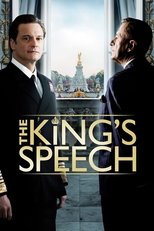
Colin Firth yelling "I have a voice" elucidates the power of thought, opinion and conviction. It also sums up the courage taken by King George VI to simply conjoined and deliver a message through the art of the spoken word. For Firth's character though, King George VI, such an action cannot be looked at as an art, but as an impediment that can only be accomplished in the most trying and basic of steps.
The King's Speech so smoothly nails down the basics, while incorporating a warm exuding spirit. It includes suiting complimentary performances from Geoffrey Rush and Helena Bonham Carter as well as a slightly more than cameo role for Guy Pearce. This is the breakout film for director Tom Hooper, who has directed HBO miniseries such as John Adams and Elizabeth I. It is also the most notable screenplay written by David Seidler to date.
Although The King's Speech is not a revolutionary film by any stretch, it is one delivered by way of experience, maturation and a point of purpose.
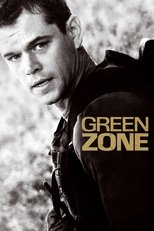
Over the past six years Paul Greengrass has developed a reputation for seizing the attention of the audience. Visually this was most apparent in The Bourne Ultimatum and emotionally with United 93. Green Zone is a film in which Greengrass attempts to integrate both. The film is centered upon the beginnings of the Second Gulf War and the search for WMDs. Immediately creating a connection with the audience by jumping into an event not too distant in our past, in fact still ongoing.
The main character of the film is a United States army officer whose task is to find the WMDs for a much too anxious public. The officer is played by Matt Damon whose now been a part of three Greengrass films (Bourne Supremacy, Bourne Ultimatum and The Green Zone). Although his performance cannot be quite framed as complete, Damon does a serviceable job in portraying his character's thought process, actions and a need for truth. This applies to the rest of the cast as well; Brendan Gleeson and Greg Kinnear as CIA operatives, Amy Ryan as a journalist and Yigal Naor as an ex-General who was under Saddam Hussein. All characters represented different quantum on the spectrum of United States involvement in Iraq but for the most part were kept in relatively simple form. The lack of complexity in the characters provided for more of the film to be plot driven as well take shape around the pace and action.
The Green Zone is not astonishingly well written nor is it character based. In essence the film is played safe, no risk is taken with no complexity. At certain points the plot can be sketchy because of the lack of character based details but it holds up. Greengrass shows that he knows how to play it safe. His direction delivers a sold film that can make you ponder over the setting of The Green Zone. It is fairly suspenseful and is able to maintain a good level of interest from start to finish. The film though may not be quite memorable, it just does not take enough risks. I cannot say if Greengrass is at fault for this or not but considering the material from what was shown on the screen, it seems it was maximized. The Green Zone showed glimpses of promise, but just did not open up enough to fully fulfill them or present more.
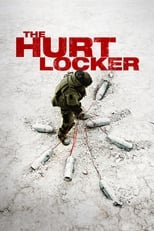
Over the past three years, give or take, there have been an assortment of films that have attempted to articulate and illustrate the many complexities of the Middle East. Paticuluarly in the aspect of Western involvement in this tense region. The Hurt Locker is that: tense and at times nerve racking.
The generation of such sensations and feelings of anxiousness and distress should be much accredited to Kathryn Bigelow, the director. Yet the reason for her success which of course is her direction, is quite unorthodox. The most tense and debilitating moments are done so in slow pacing and seemingly tranquil moments rather then rushing into rapid action and quick camera-shots. The screenwriter of the film, Mark Boal continues to rise with The Hurt Locker as only his second screenplay, the other being In the Valley of Elah. The two combined together create not just greatly done action sequences but ultimately thought provoking ones.
The performances as well were quite convincing from almost seemingly upcoming stars in Jeremy Renner, Brian Geraghty and almost certainly Anthony Mackie considering his powerful résumé. There are also greatly meaningful quintessential cameos from such well accomplished actors such as Guy Pearce, David Morse and Ralph Fiennes.
Films on this subject have tried focusing on very focused and specific aspects of this plight and find themselves wandering off into unnecessary and confusing aspects of the story. Others have attempted to assess the situation broadly but with doing so, most often make the mistake of presenting the different facets in a much too mundane or simplified fashion. With this it is obvious very few films have succeeded in presenting a thorough, accurate and sensible look at this tense region. The Hurt Locker creates a tension that I last felt from Apocalypse Now. I'm certainly not saying the film is of the status of Apocalypse Now but I certainly advise to watch at the least a very good war film.
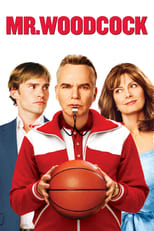
....trailer I have ever seen in my life. Whoever did the advertising for this "film" should get some sort of special achievement academy award because it had me totally fooled. The trailer did many things to fool many people, as in show scenes that weren't even amusing in the film and then edit them together in a way that actually gave you quite a laugh to see in the commercial. I usually do not say this but I regret having watched this. This crap that got thrown on the wall and did less then just not stick, it boomeranged.
For a bit of a stretch you could say I like others admired some of Billy Bob Thornton's work. Mr. Woodcock didn't exactly push me farther then that feeling of admiration. What it did do though is lose interest in any future projects involving him. As for Susan Sarandon her career like other well respected actors and actresses has turned into a bit of an uneventful one, which is just fine but don't perform in garbage like this. What is quite baffling though is that the director of this film, Craig Gillespie, had simultaneously had another release of his own in Lars and the Real Girl which contrasted in so many ways to Mr. Woodcock. For one, it was at the very least above average. Mr. Woodcock was at the very most, a disaster.
Obviously I would not recommend this film. It is not funny and if you are looking for films that contain the same sort of jokes or themes they're plenty of other films Thornton has made before Mr. Woodcock. If you've already seen those then just watch something totally different. It won't make you laugh and it isn't even corny enough to mildly warm your heart. It is a hollow movie that will only make you remember that you at one point watched one the greatest trailers ever.

M is a monumental film and seriously should be watched by all. For a film like this to be made in 1931 is just shocking. Even if the film was released today it would still be nothing like we have seen before. In our modern age of film making there has been a considerable rise in the production of films about serial killers, their complexities and particularly about pathological ones. Yet, M is the first movie that comes to my mind when I think of the themes that have been in Psycho, Silence of the Lambs, Seven and not to mention countless more.
The film is lead by Peter Lorre in a transcending performance who plays the serial killer and rapist in which the film is centered around. In this performance Lorre is successful in something that at the very least is rare to see in any kind of film, compassion for a child killer and rapist. Lorre makes the viewer see, that he is not a criminal by choice but by a sickness of compulsion. Too often then not is our perception of a psychotic killer having that look that puts fear into his or hers victims' eyes. Lorre doesn't do that but rather displays a frightened man, a scared man. One in which his desperation leads to his hazardous behavior. His portrayal of a killer is not of a fearless one but of one consumed by fear. Something that even today we as a people cannot understand, let alone in 1931.
The direction and writing of Fritz Lang is beyond comprehensible as he taps into the mind of a serial killer and his complexities. He does so in such that we get an empathetic and compassionate illustration of all sides of the story. This in which by then end of the film all points of view are more then well delivered to the audience. Fritz Lang here, has simply created here a timeless masterpiece. One that excels in its technical aspects and enlightens the audience on a topic that other films still have not yet to match M in.
I highly recommend this film for many obvious reasons and conclusions. This film was created by one of the all time great directors in Fritz Lang, Lang's command for the screen is mesmerizing and a joy to witness and so on and so forth. Yet much of this is mostly superficial and a waste of time to continuously state. M, as I mentioned before takes a strong and original stance on an issue that we as a society yet have not fully resolved. This film may not give you THE answer on this issue but it may sway that moral compass of yours that lies inside of all of us.
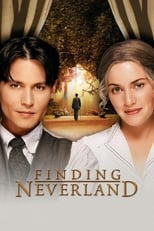
I am not one to warm up to movies centered around themes such as this film. This is not because the idea of adults finding their inner child is ridiculous or immature to me. Its a result of films facing that theme also face a very big challenge on managing to correctly portray a transformation of an adult by children. Also if it actually extremely benefits the adult character in many profound ways. Most of the times films never succeed at this and are done so irresponsibly promoting dangerous styles of living that could be just as hurtful to others around us. Now the major question that is posed then, is why does this film succeed where others do not? What makes this film so precise yet so open?
With Johnny Depp as the lead character, James Matthew Barrie, you know he will be ideal for the role of someone inspired by creativity considering the unique feeling Depp can bring to any film. At the outset of the Finding Neverland, Depp's character is in dire straits to not only find himself as a writer but flat out just find himself. Eventually he does succeed at both through the help of three children he befriends whose mother, played by Kate Winslet, is ill. Depp discovers what he had long been missing, imagination and open mindedness. The children bring him that which is throughout is so wonderfully conveyed. His new lifestyle in no way endangers the people around him rather it enables his decisions to be more enlightened and thought out. Yet it still brings him into question. The cast is filled with talent ranging from of course Depp and Winslet as well to Julie Christie and Dustin Hoffman. What the cast does not just play their characters, their characters are embodied by them all the way down to the performances of the kids.
Marc Foster takes on this challenge of an adult searching for himself with complete success. The writing and dialog is always engaging as well as the music and all the other technical aspects that go into making a movie. Still, remains the question what sets this film apart from others that attempted to be like it? Unlike other films this film is centered around youth equaling imagination and creativity. Not always is it a must to abide by the rules, maybe not the rule of law but the unwritten rules of being an adult, being a writer or any other sort of unwritten or written rule relating to anything. Nonetheless this must be done at a responsible and safe level which this film never fails to display. These rules can limit our creativity which limits the capabilities of our mind and ultimately drastically decreases the chances at happiness on any pure or genuine level.
Too often is youth simply associated with fun, stupidity and meaningless entertainment. It never falls into that trap. What this film shows is that we make meaning of our lives and this should start from our youth but not dissolve as our lives become further complex and self contradictory. Depp shows with his reclaimed youthfulness his life can only go up as does his happiness yet this is unjustifiably rejected by "responsible", "sensible" and "mature" adults. Depp's characters knows they are wrong through his writing and newfound appreciation of life but more importantly the people close to Depp know it and can see it to be true. In this way though, Finding Neverland may give us the key clue on how to find ourself.
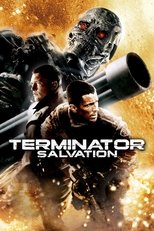
Terminator Salvation was actually a movie I was looking forward to see. Then I read who the director was, McG and I dropped any idea of this movie being spectacular on any level. Still that left me hope of some mediocrity and a clichéd but yet for the most part fun ride. Well trust me you will get all of that except the fun or even the ride, and that was me in the movie theatres.
The film was hardly ever engaging, yet they were some great elements to the film. Such as the visual and sound effects along with the music, that is probably about it. Then came all the problems, and the most glaring one was Christian Bale. Not only was he a disappointment but he wasn't did not even give the best performance in the film nor even the second best. His performance was incredibly dry in a way that you would have never thought the character he was playing, John Connor, had made his first appearance in a film. Of course this is not true with the first three Terminator films but Bale in no way makes you think the latter instead. With Bale setting the bar so low it was a surprise to actually see Sam Worthington, a virtual unknown to most, have a some what fascinating performance as well as that of Anton Yelchin. Even with these characters do we ever get the feeling of caring about them? That answer is an easy not. There was an opportunity to possibly do so but as the movie winded down, more screen time was given to the "star" in Christian Bale and the film was at the point were wouldn't careless about what really happens to him.
If you have seen any of McG's movies you will know from the opening minutes this film follows along the same sort of line as his past films. During moments of his movies you wonder if you're even watching the same movie you started out with and that is by no means a good thing. Its as if scenes are stolen straight out of other movies that have been successful and rolled together to make a movie that barely surpasses that of cable TV movie that would premiere at 3 am. Even with that his movies usually have some sort of a point, no matter how corny or clichéd the ride was to take us there.
So who is to blame then? That only leaves the screenwriters left who I bare no compassion for, mind you these are the same pair of writers that brought us Catwoman. Michael Ferris and John D. Brancato are their names and considering their extended history of mostly co-screen writing movies this shouldn't come as much as a surprise. If there is anyone looking for salvation, it is not the humans of John Connor's world but the screenwriters of our world that helped create this.
Obviously I would not recommend this debacle of a film. Nevertheless there is still something to take out of this film; before ever watching a film, don't look at the cast, not even the director (which if you remember was the mistake I made), at least not at first. Make sure you take a peak at who the writer is even if it is an action film. This is assuming you are interested in seeing a movie that has something which is at least on the verge of containing a real plot or on the realm being a credible film.
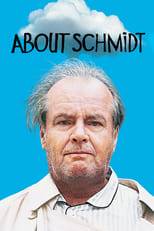
Of course we would hope that is not the case but watching a movie like this certainly puts the idea of life into question. This is a funny movie but looking back its probably not quite the kind of jokes you appreciate laughing at.
In the lead role as Warren Schmidt is none other then Jack Nicholson, with an already astute résumé, only further strengthens his long career with his subtle and charming performance. The charm never wears off with the audience as Schmidt's morals and interest for the most part stay in place in his heart and mind. Unfortunately in the tale of Schmidt in the film not only does his charm wear off but he is seen as a liability by those who he thought of as his loved ones. His life takes this crash when he retires from his career and an insurance agent. Soon after he realizes he may have wasted his entire life away. The downward spiral of his life and his sense of purpose hangs on the thread of a boy he has never even met.
As subtle as Nicholson's performance is, so is the writing. It is quietly very witty which almost inconspicuously gives off a whole lot of cynicism. Along with Alexander Payne writing the screenplay he directed the film as well. The movie is certainly not all style and why should it be when that could possibly be the only thing that could really hurt this film. The film is about humanity in a raw and complex way, sometimes the best method of showing this is through simplicity to the point where you are almost certain there is something else that lies behind the curtain of it all.
There is no doubt I would recommend this film but don't expect a pure comedy. Instead try and take a fresh and real look at the entire movie and the events that take place. Depending on who you are, you may find certain points of this movie to be either sorrowful and dejected or slightly uplifting and optimistic. Just don't make a heartless joke of it, because none of us want to think of our life as that; a joke.

